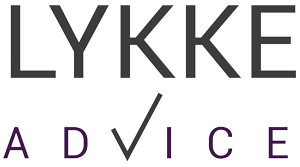In early 2023, the European Parliament launched the Public Health Subcommittee (SANT). The newly established body became operational in April, when it presented its work programme and hosted its first hearing with Health Commissioner Stella Kyriakides.
The creation of SANT is the result of unprecedented times, and the European Parliament’s response to step up its role in a policy field where the EU only has supporting and coordination competence. The COVID-19 pandemic tested the EU crisis response and management capacity, and while we can say the Union reacted successfully, the European Parliament had a relatively less relevant role compared to the Commission and Council: the former had a key guidance and coordination role, developing tools such as DG HERA and negotiating vaccine contracts; the latter played its role as the forum for member states to align their national responses as much as possible and give a sense of coherence across the continent. On the contrary, the Parliament was initially paralysed by the pandemic, although it eventually found its foot first as a watchdog of the EU response to the pandemic, and now as an equal player in shaping the EU Health Union and preparedness and response capacity future cross-border health crises.
While the WHO declared that COVID-19 is no longer an international health emergency, the pandemic is still very present in SANT, and rightly so. As the EU builds its arsenal against health threats, SANT MEPs quizzed Health Commissioner Kyriakides on a number of pandemic-related subjects during the first hearing held in the subcommittee, on April 20. MEPs’ questions spanned joint public procurement of medical countermeasures, prioritisation of critical medicines, mapping of medicine stocks and medicine shortages, equal access to medicines. It is not a coincidence that the SANT programme includes an Initiative Report on the joint purchase of medicines and their storage, and a report on mental health, another key aspect being explored also in the aftermath of the pandemic.
However, narrowing the scope of SANT’s work to the pandemic would be misleading. Afterall, the special committee COVI was created for this specific task. Other committee’s priorities include the pharmaceutical legislation, the legislation on cosmetic products, health aspects of CBRN threats, antimicrobial resistance, the European Medicine Agency and the European Centre for Disease Prevention and Control. The subcommittee’s programme is far more ambitious and forward-looking as it includes a report on non-communicable diseases and an implementation report on the Regulation on nutrition and food claims. SANT will also host a number of hearings and other initiatives on orphan drugs, the revision of the pharmaceutical legislation, and cross-border healthcare.
However, SANT is not free from criticism. While the Environment, Public Health, and Food Safety (ENVI) Committee has highlighted on several occasions the wide-ranging responsibilities it holds, detractors of SANT are concerned about the risk of decoupling environmental and health matters in the policy discourse, in opposition to the One Health approach that sees human and animal health and environmental protection as closely interlinked.
It remains to be seen how this ambitious programme will deal with the short time left until the next EU elections in May 2024, and with MEPs expected to enter campaign mode already in the autumn. On the one hand, MEPs will be more and more busy with their re-election race; but on the other, health might well become a focal point of the elections, and the SANT committee might survive or even evolve into a stand-alone committee after the elections. Moreover, by looking at the membership of SANT, the ambition of the subcommittee is also reflected in the high number of health policy heavy-weights such as SANT Chairman and former Polish Health Minister Bartosz Arłukowicz (also former Chair of the Special Committee on Beating Cancer), Vice-chairs Tilly Metz for the Greens and Joanna Kopcińska for the ECR, Portuguese Sara Cerdas for the S&D group, or French liberal Véronique Trillet-Lenoir, just to mention a few.
In conclusion, as health challenges become more global and transnational, the establishment of SANT highlights the Parliament’s goal to restore and enhance its role in the EU health policymaking, and we can expect it to become a key arena for debate and deal-making. Lykke Advice can help you navigate the activities of the SANT subcommittee by providing expert insights and analysis on the subcommittee’s work and its potential impact on your agenda, providing regular updates, and offering strategic advice on how to engage with key stakeholders to ensure that your perspectives is heard and considered.


